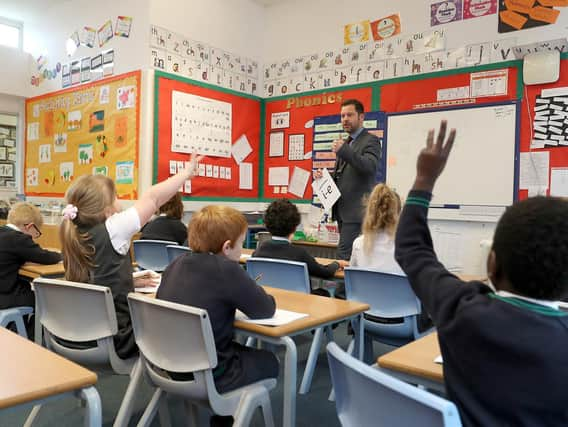Government needs to 'step up to the plate' to resolve rich and poor attainment gap, Sheffield MP says


Gill Furniss, Labour representative for Sheffield Brightside and Hillsborough, called on ministers to ditch the “empty rhetoric” and support those on free school meals who have fallen behind in recent years.
Speaking in the House of Commons, Ms Furniss said: “Under this Government’s watch the attainment gap between the richest and poorest students has rocketed.
Advertisement
Hide AdAdvertisement
Hide Ad“Since 2019 alone, GCSE students on free school meals have fallen behind their peers by almost a third.
“This adversely affects pupils in my constituency of Sheffield, Brightside and Hillsborough who are significantly more likely to receive free school meals.
“So when will the minister decide to ditch this empty rhetoric and step up to the plate to resolve the fundamental underlying issues?”
Schools minister Nick Gibb claimed that the Government “totally understand[s]” the “challenges” that young people have faced during the coronavirus pandemic and called on Ms Furniss to “look back at the Labour record we inherited in 2010”.
Advertisement
Hide AdAdvertisement
Hide AdHe told MPs: “Up until the pandemic we had closed the attainment gap between disadvantaged children and their peers by 13 per cent in primary school and by 9 per cent in secondary schools.”
Mr Gibb went on: “We do accept the challenges faced by young people during the pandemic and that’s why we’re committed to £3 billion of catch up funding.
“We’re introducing a tuition revolution with 100 million hours of small group tuition for young people because we as a Government will do everything we can to ensure that children can catch up from any lost education they’ve suffered during the pandemic.”
Following last month’s GCSE results - decided by teacher assessment after exams were cancelled for the second year in a row as a result of the pandemic - Ofqual figures showed that 61.2% of GCSE entries from private schools in England achieved a grade 7 or above this year, compared to 28.1% of state academies, a gap of 33.1 percentage points.
Advertisement
Hide AdAdvertisement
Hide AdAnalysis also found that 68.4% of GCSE entries from grammar schools in England were awarded a grade 7 or above this year, compared with 26.1% in secondary comprehensives.
Education Secretary Gavin Williamson also took to the Despatch Box during Monday’s Education Questions to outline some of the measures in schools to try and reduce the spread of coronavirus as pupils head back to the classroom.
Mr Williamson told the Commons: “We remain committed to reducing disruption to children and young people’s education [...] Schools are maintaining proportionate protective measures such as testing, ventilation and extra hygiene to keep pupils and staff safe.
“On-site testing will be offered as students return, followed by regular at home testing.”
Advertisement
Hide AdAdvertisement
Hide AdHe also said that the need for children to do Covid testing at home will be reviewed at the end of this month, explaining: “We will be reviewing the need for children to be doing home testing at the end of September, if there isn’t a requirement to do that we will be looking at removing that, but it is important that we continue to keep these matters under review.”